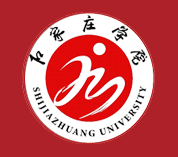In line with our commitment to moral education and the comprehensive promotion of classroom IPE(Ideological and Political Education), our university organized a sharing conference on June 28th to showcase exemplary provincial-level projects. This event aimed to disseminate successful experiences, enhance teachers' competencies, and promote classroom IPE. Professor Sun Xiuguo from Shijiazhuang Railway University and Dr. Li Yang from Hebei Normal University were invited to provide expert insights and evaluations. Among those attending the conference were SJZU Vice President Li Juan, alongside over 160 other participants, including deans, department heads, and project leaders from various colleges within the university.
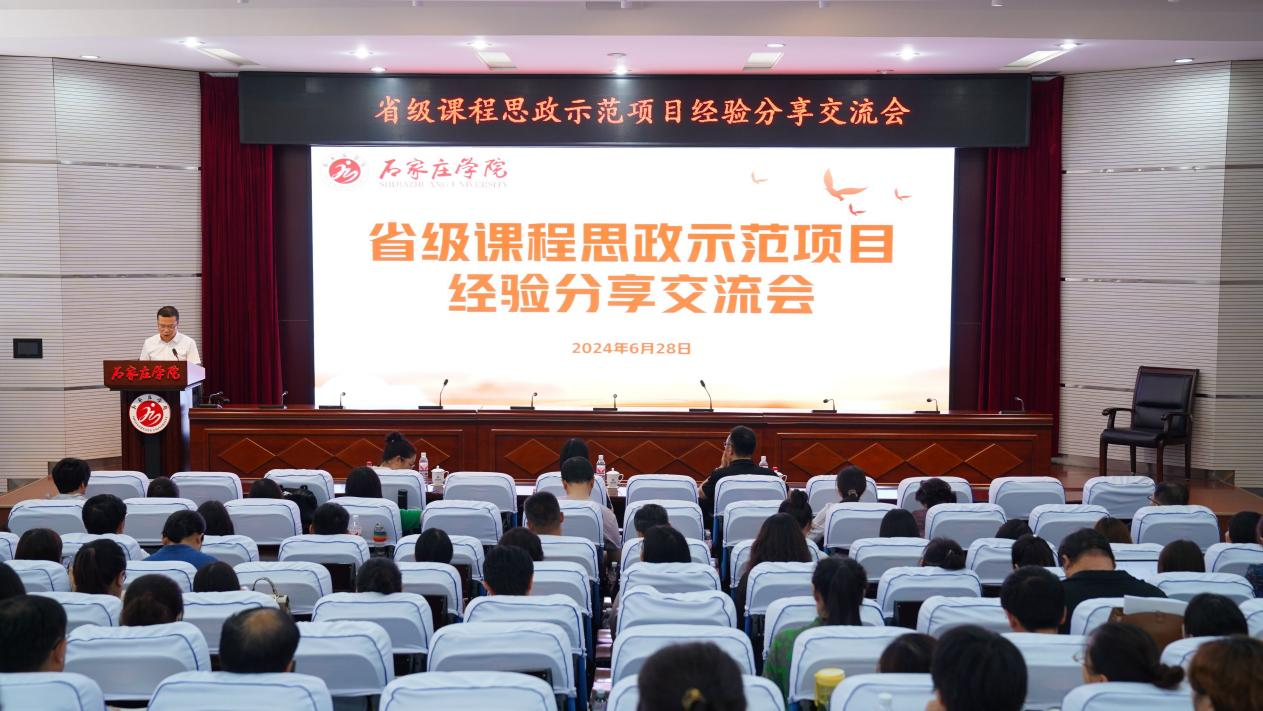
Deputy Director Lu Zhijia of the Academic Affairs Department welcomed the attendees and briefly reviewed the progress and outcomes of our university's classroom IPE initiatives over recent years. SJZU Vice President Li Juan presented special appointment certificates to Professor Sun Xiuguo and Dr. Li Yang, recognizing them as experts in classroom IPE.

Five project leaders- Liu Huiru, He Junliang, Tian Wenhuan, Zhao Liqin, and Wang Xianbin presented their experiences and practical insights into integrating ideological and political education into five courses: Principles of Chemical Engineering, Cartography, Business English Practice, Probability Theory and Mathematical Statistics, and Fiber Optic Communication. Zhao Cuijian, head of the Electrical and Mechanical Specialty Cluster classroom IPE Center, reported on the center's construction progress, including the design, online-offline integration, and the implementation of a series of activities. She also shared innovative outcomes in curriculum design, talent cultivation, and the "Political education + Course" model for classroom IPE.
Following the presentations, both experts provided insightful comments. They commended the pioneering spirit and practical achievements of the project leaders and offered valuable suggestions.
Professor Sun Xiuguo, observing that each exemplary course has developed a unique model, proposed refining these into a reproducible paradigm to facilitate broader application and have a significant impact on other courses. She emphasized the importance of seamlessly integrating ideological and political elements into teaching, utilizing the specific characteristics of each discipline and course to achieve a subtle yet profound educational effect. She advocated for the flexible use of diverse teaching strategies in a relaxed learning environment, which would enable students to effortlessly absorb knowledge and imbibe positive values. Additionally, she encouraged participation in classroom IPE competitions to elevate teaching capabilities and enhance classroom IPE.
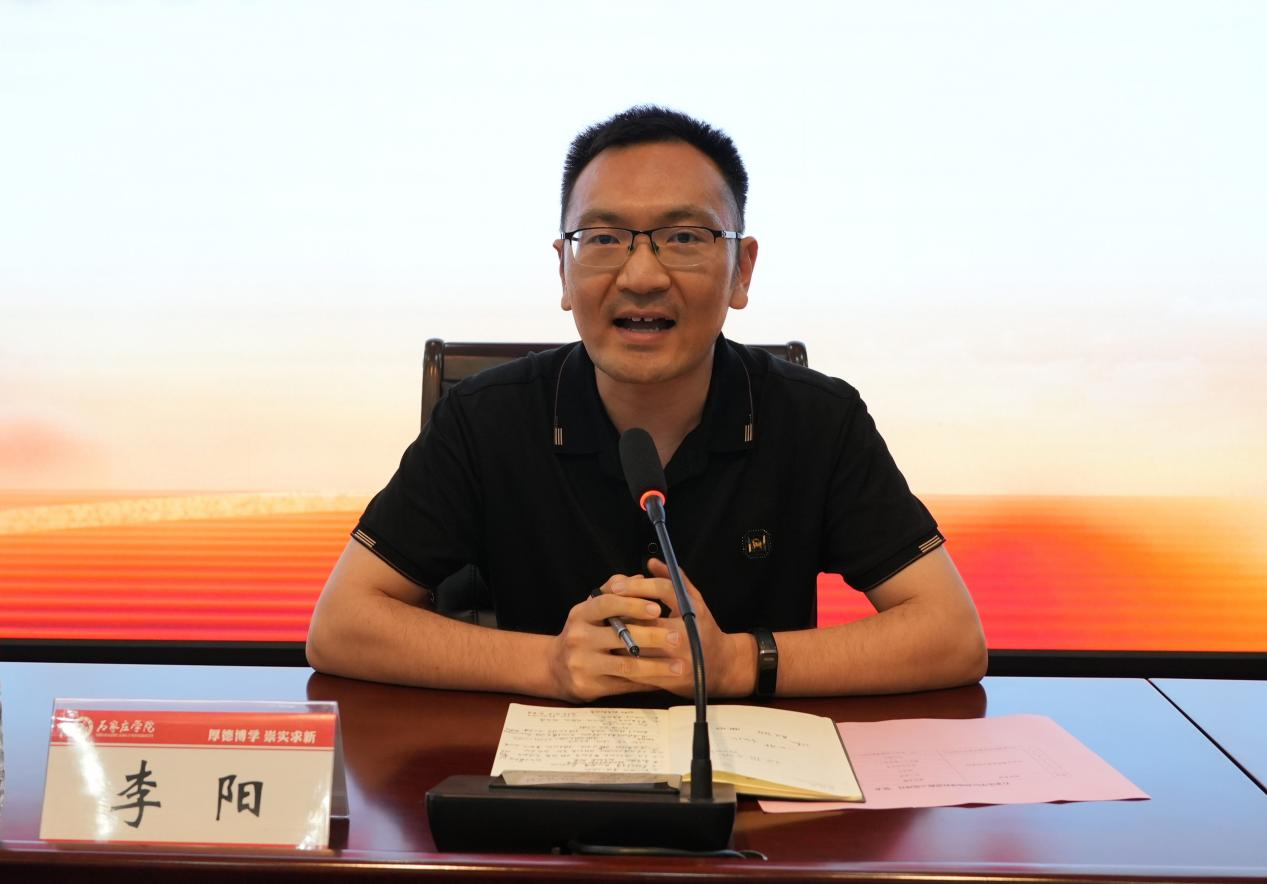
Dr. Li Yang emphasized that high-quality ideological and political elements must be relevant to students' realities while fostering critical thinking. He advised teachers to explore students' interests and uncover relevant ideological and political elements within those areas. He underscored the importance of blending first and second classrooms through interactive and complementary approaches to ensure effective integration of these elements. Ideological and political education should align closely with course highlights and challenges, striking a balance between them. The effectiveness of implementation should not be judged solely by classroom presentation but by its ability to inspire student reflection both inside and outside the classroom. Teachers are encouraged to reflect deeply and explore creative ways to incorporate ideological and political elements into course design, guiding students towards deeper contemplation.
This sharing conference was one of several events showcasing the achievements of our university's provincial-level classroom IPE demonstration projects. It not only offered us invaluable experiences and insights but also infused fresh energy into our ongoing efforts to reform education. To build upon this momentum, we will continue to strengthen classroom IPE initiatives, organize specialized training sessions, foster exemplary leadership, and develop a unique identity centered on innovative course design. By creating a comprehensive educational ecosystem, we strive to nurture well-rounded individuals who will contribute meaningfully to socialist construction and the ongoing progress of our society.
(Contributed by the Academic Affairs Department; Correspondent: Zhang Lijuan; Editor: Wen Jingjing)
 stamp
stamp

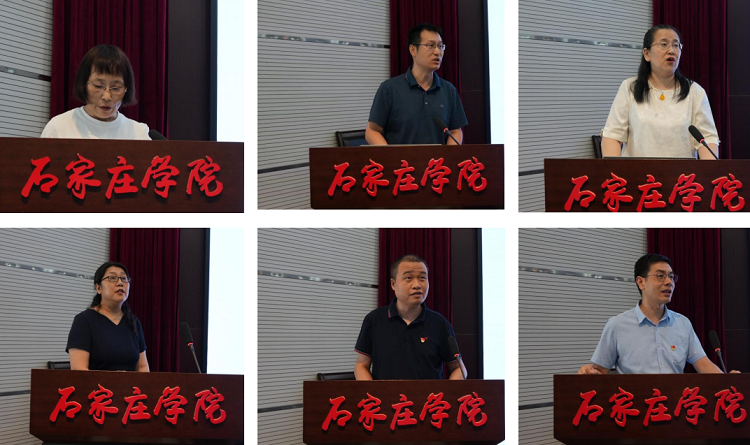
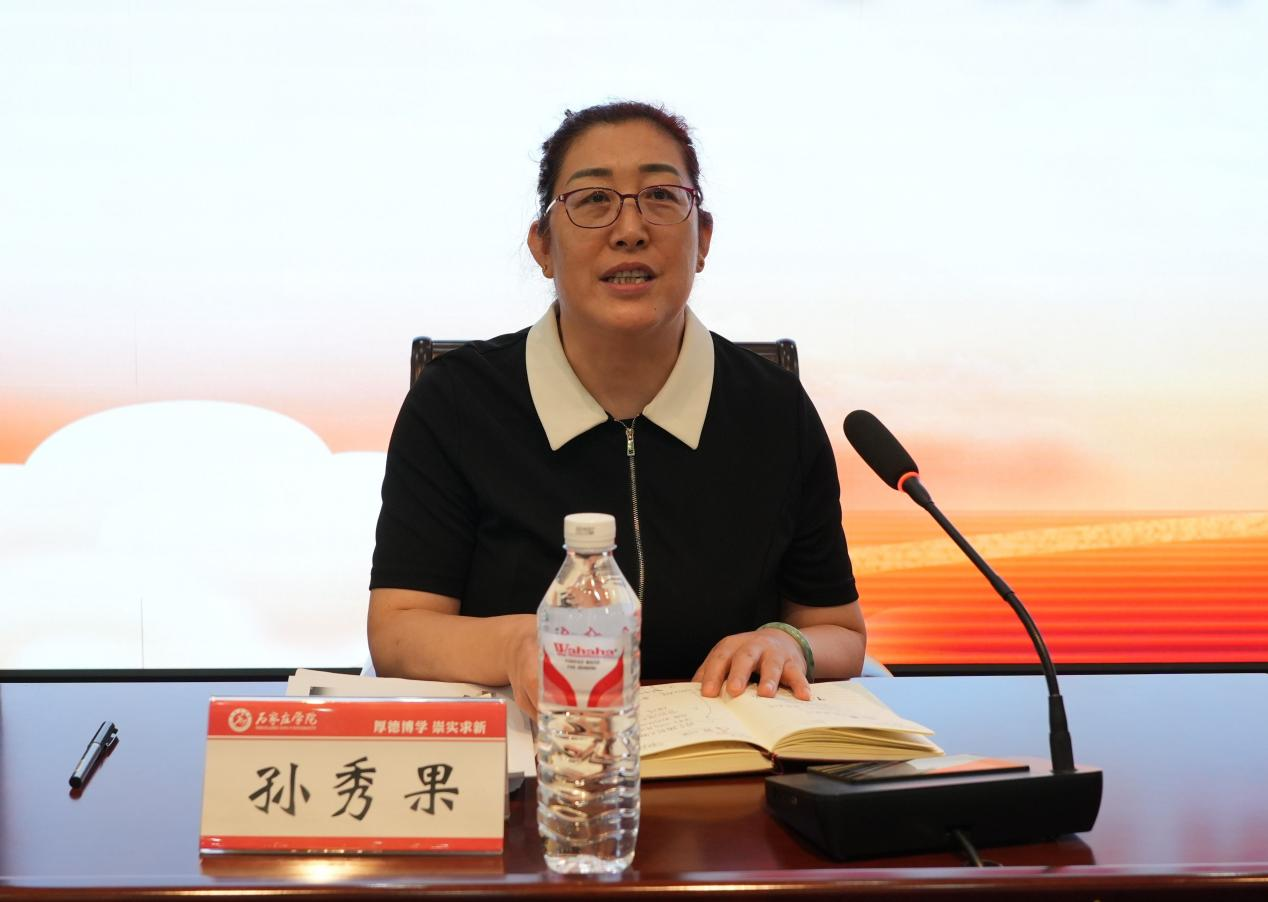

 stamp
stamp




